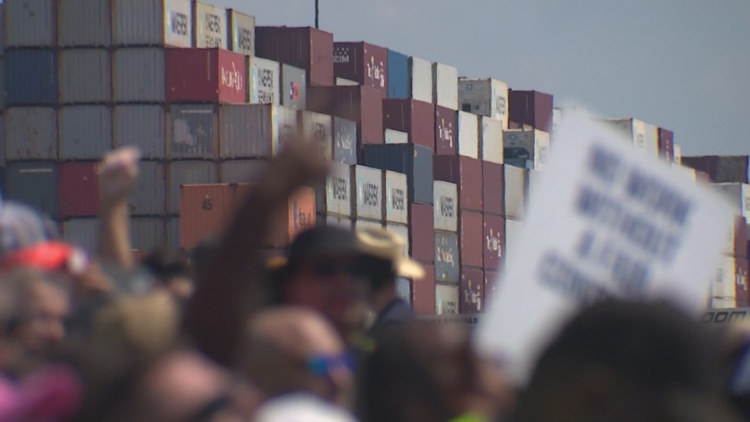Longshoremen Launch Strike Amidst Nationwide Negotiations

Longshoremen and women across the country initiated a strike on Tuesday, marking the first time in decades that such a widespread labor action has taken place. The International Longshoremen’s Association (ILA) is currently in negotiations with the US Maritime Alliance (USMX) in hopes of reaching a new collective bargaining agreement.
The effects of the strike are already being felt in Houston, where the closure of the container terminal at Port Houston is expected to impact the local economy. Dockworkers are demanding wage increases and protections against the automation of their jobs, a central point of contention in the negotiations.
Despite the challenges posed by the strike, both sides remain optimistic about reaching a resolution. Bill Williams, the secretary-treasurer for the ILA’s South Atlantic and Gulf Coast chapter, believes that a deal is within reach, emphasizing the importance of addressing concerns around automation.
While the strike may disrupt the flow of goods and impact consumer prices, it also highlights the critical role that longshoremen play in powering the economy. Hany Khalil, executive director of the Texas Gulf Coast AFL-CIO, stressed the essential nature of the work performed by these workers.
Several elected leaders have expressed solidarity with the striking longshoremen, including US Rep. Sylvia Garcia, Harris County Precinct 1 Commissioner Rodney Ellis, and Houston Mayor John Whitmire. Whitmire emphasized the need for a fair resolution and indicated that further intervention may be necessary from President Joe Biden.
In response to the strike, the US Maritime Alliance issued a statement expressing a willingness to negotiate and highlighting their offer of a substantial wage increase. The statement emphasized the importance of returning to the bargaining table to reach a mutually beneficial resolution.
As the strike continues, the impact on both the local and national economy remains to be seen. The outcome of the negotiations will not only affect the livelihoods of the workers involved but also have broader implications for the transportation and logistics industry.

